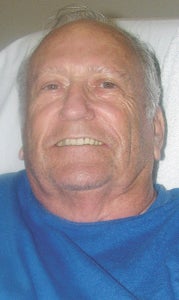Cyclist on road to recovery in new hospital unit
Published 10:18 pm Thursday, August 1, 2013
Stanley Smith hopes to be pumping the pedals on his red bicycle again soon.
But first, the 74-year-old will have to recover from the knee replacement surgery he had on Monday. Helping him in that process will be the therapy he receives as the first-ever patient in the Sentara Specialty Rehabilitation Center at Sentara Obici Hospital.

Stanley Smith relaxes in his room at Sentara Obici Hospital Thursday just before being moved to the hospital’s new Sentara Specialty Rehabilitation Center.
Ever since he knew he would have to have surgery, Smith has known he would be on the new unit, which is part of Sentara Life Care. He delayed the surgery three times until he was sure the unit would be open.
“There was no question I was coming here,” the long-distance bicyclist said.
The new unit allows patients who undergo hip and knee replacements at Obici to transfer from their post-surgery unit straight to the rehabilitation unit with just a wheelchair ride. Previously, patients would have to select a separate facility outside the hospital and go through an ambulance ride, perhaps exacerbating their pain, to get there.
“Now they can literally be rolled down the hall,” said Dianne Benton, director of nursing for the new rehabilitation center. “They already know the nurses that are on our inpatient unit. I think it’s more of a seamless transition.”
The Virginia Department of Public Health issued a Certificate of Public Need to transfer up to 10 beds to the new unit from the Sentara Nursing Center Portsmouth. That facility will use the freed-up space to turn double-bed rooms into private rooms.
There are other benefits to patients who use the new unit, as well. Once there, they don’t have to leave for any diagnostic tests they might need, as they would at a freestanding facility. Staff will still have each patient’s electronic medical records at their fingertips.
There are some invisible benefits, too.
“We know how to navigate the regulations around rehab,” said Steve Minter, director of operations for Sentara Life Care. “Our partners at Sentara Obici will help us provide smooth handoffs from acute care to rehabilitation, which is a big plus for patients.”
Knowing that they can get their surgery and rehabilitation in one place already is attracting interest, orthopedic patient care navigator Tracey Stallard said.
Patients frequently ask her during the pre-operations workshops she hosts if the hospital offers rehabilitation.
“Now I can say, ‘Yes, we do,’” she said. “I think that’s going to be a big deal to people who need it.”
After initially accepting only knee and hip replacement patients from Obici, the unit will work up to admitting back surgery patients and stroke survivors from Obici, and later on could admit from other Sentara facilities.
“Our priority is to serve the community,” Benton said.






